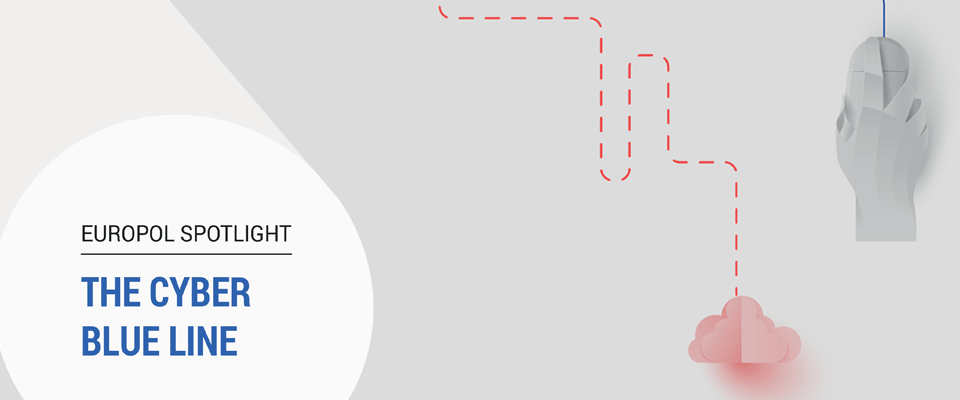
It all started in 1854 at the Battle of Balaclava during the Crimean War when a red-uniformed Scottish Highland Regiment formed a long line and extraordinarily halted a Russian cavalry charge. This act of bravery inspired a phrase still in use today – the thin red line, which is echoed in the term thin blue line often used in the context of law enforcement – as a thinly stretched resource, resisting far greater forces. The thin blue line flag graphic has appeared on everything from police coffee cups to COVID-19 masks.
The ‘cavalry charge’ is now taking place in cyberspace, as a significant and ever increasing aspect of police work today is dedicated to providing safety and security online. This not only means protecting the rule of law and victims online, but also serving the online community. In doing so, law enforcement is confronted with a number of challenges that, at their core, link to the question on where to draw the thin blue line in cyberspace.
Published today, the Cyber Blue Line report – the latest publication in the Europol Specialist Reporting series, highlights these challenges and identifies a number of pertinent issues which require debate, and thought leadership.
Join the discussion
From the thin red line, to the thin blue line, to the Cyber Blue Line: Where does responsibility now lie when it comes to maintaining secure and safe societies in cyberspace?
The two authors of the report – Prof. Dr. Mary Aiken and Dr. Philipp Amann, explore the changing ways in which policing could be approached, in the real world and cyberspace, in a continuously evolving technological upheaval.
Prof. Dr. Mary Aiken is a world-leading expert in Cyberpsychology – the study of the impact of technology on human behaviour. She is a Professor of Cyberpsychology and Department Chair at Capitol Technology University Washington DC, a Professor of Forensic Cyberpsychology at the University of East London, and an Adjunct Professor at the Geary Institute for Public Policy, University College Dublin, Ireland. Prof. Dr. Aiken is an Academic Advisor to Europol’s European Cybercrime Centre (EC3). Prof. Dr. Aiken holds a PhD degree in Forensic Cyberpsychology, and a MSc in Cyberpsychology.
Dr. Philipp Amann is the Head of Expertise & Stakeholder Management at Europol’s European Cybercrime Centre (EC3) and responsible for assessing and acting on relevant trends and threats related to cybercrime and cyber-security. Other key areas of responsibility include managing EC3’s advisory groups, prevention & awareness and technology foresight. Dr. Amann holds a PhD degree in business informatics from the University of Vienna and a MSc in Forensic Computing and Cybercrime Investigation from the University College Dublin.
Europol, as the collective voice of European law enforcement, strives to provide a platform for important discussions by facilitating multi-stakeholder dialogue to discuss responsibility, accountability, safety and security now mediated by technology.
Are you an academic or a think tank with an interest in this topic? Then please get in touch with us at press[at]europol.europa.eu to discuss how we could work together to discuss, debate and conceptualise the Cyber Blue Line.
Follow this news feed: EU





